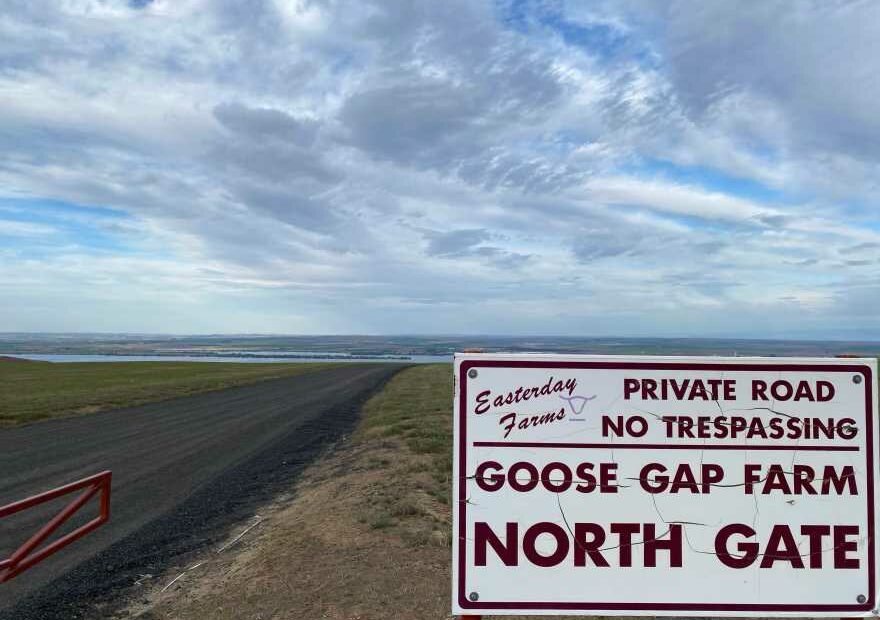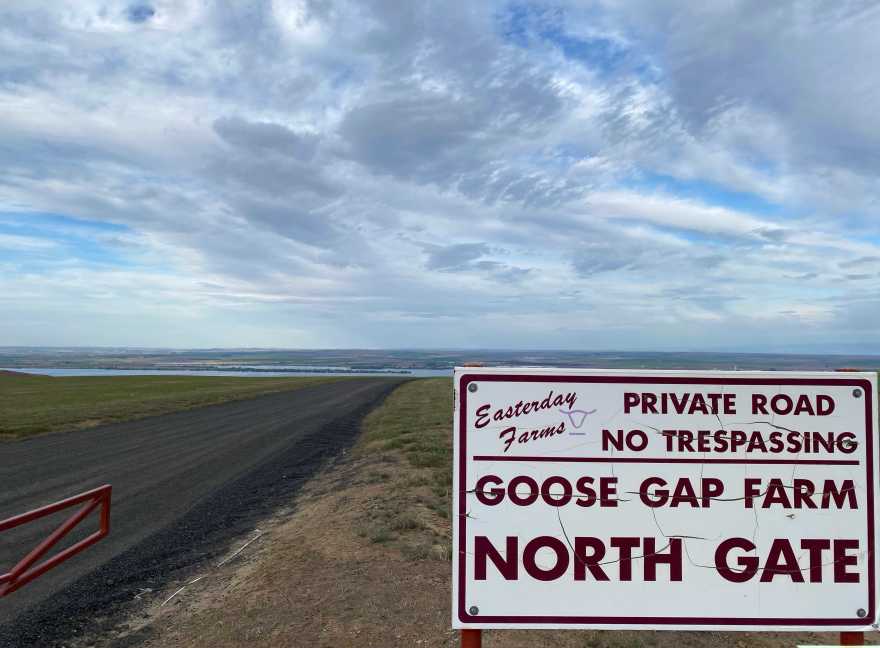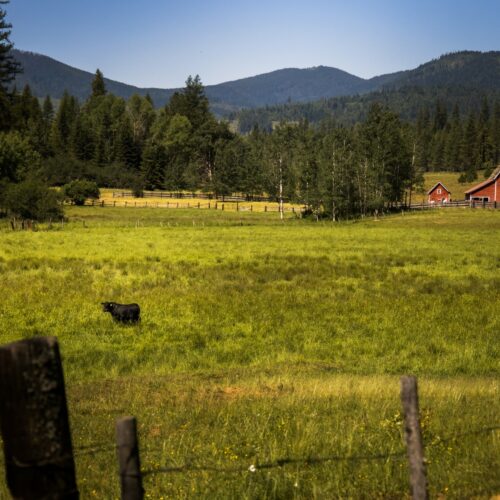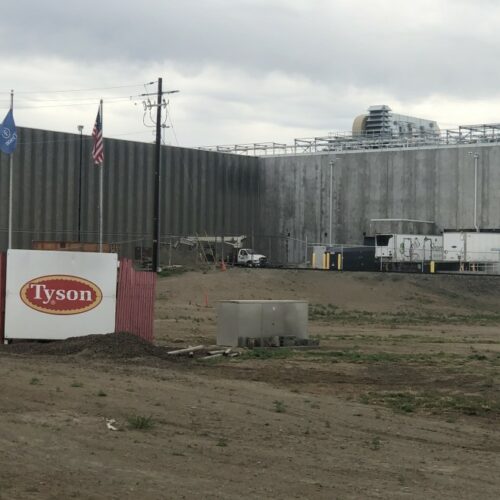Bidders are lining up for a $14 million equipment auction in the latest turn of the Easterday ghost cattle scam.
There’s a fleet of Dodge Ram trucks, tractors, dozers, feed mixing wagons, 4-wheelers and even a horse trailer with living quarters for riders. In all, more than 100 truckloads of farm-related equipment are on the auction block in one of the largest sales of farming gear ever undertaken in the country, much less the Northwest.
“I guess what I’d tell you is that [this sale] would be unusual in scope as far as the numbers,” says Max Steffes, a leader with Steffes Group out of North Dakota, a major auction house that serves about 10 Midwestern states. “That would be unusual to have a $14 million dollar sale and not have some property involved, yes. It certainly would be a big auction and get them [farmers] talking.”
This deal was limited to big ag players since the bankruptcy creditors wanted to sell it off as a total package, says Steffes.
“It certainly limits your market, in terms of buyers,” he says. “There’s not very many people that can write a check for $14 million for a line of equipment vs individual end users for each individual asset. Each circumstance is different and warrants a different solution and plan, and in this particular case it doesn’t seem like a public auction sale where each asset is offered individually was in the cards.”
Too big to move
In a court hearing, lawyers for the Easterdays told federal bankruptcy Judge Whitman Holt that moving the equipment to an auction house didn’t make sense, because it would be more than 100 loads of equipment, much of it oversized.
The Easterday lawyers felt selling everything as one entity would bring the most value to Easterday creditors.
Easterday backstory
The entire sale is happening because the Easterday family’s many farm and ranch operations are being liquidated in a federal bankruptcy. It’s the fallout from one of the largest cattle swindle-schemes in U.S. history. Cody Easterday made up fictitious cattle and charged Tyson Fresh Meats for their care and feeding for about a decade. Cody Easterday has admitted to federal fraud charges, and agreed to pay back more than $244 million in restitution. Much of the money went to fund Easterday’s speculation on the futures market, where he lost more than $200 million. He could face up to 20 years in prison when he goes before Judge Stanley Bastian in federal court. That is slated for 1:30 p.m. on Oct. 5 in Richland.
“There’s a lot of tragic consequences, because as large as this was, it’s a family business,” says bankruptcy expert Andrea Coles-Bjerre, a professor at the University of Oregon School of Law. “It is like a Greek tragedy, this whole family saga. It is sad to think of how this whole business was built, and the heights that it reached – the enormity of this thing – and to see it kind of being pieced out in a bankruptcy, there is a lot of sadness to that.”
The stalking horse
The stalking horse bidder — or the initial bidder that negotiates with the creditors for the equipment — is Blue Tag Farms, LLC. Blue Tag is a low-profile entity which lists as it contacts in bankruptcy court papers two Agri Beef employees. Agri Beef is a large Northwest beef company that markets under the Snake River Farms, Double R Ranch, St. Helens and Rancho El Oro brands. The company also exports beef to about 30 countries. Blue Tag / Agri Beef beat out four other competitors with the highest bid for the equipment so far — $14,021,720, according to court documents. If no other players come in higher than Blue Tag / Agri Beef by the end of Friday, then Blue Tag / Agri Beef will win the farm equipment.
To hold its place, Blue Tag / Agri Beef has put down a deposit of $1,402,172, which will be applied to the purchase price.
Blue Tag / Agri Beef’s bid for all this crop production equipment raises eyebrows among big ag players, because the company is in the beef ranching and packing — not potato, onion or wheat business. Agri Beef also recently purchased a large feedlot from the Easterdays. The company didn’t respond to our request for comment.
The purpose of a stalking horse bidder is to guarantee that an auction will end successfully — “[the stalking horse] serves as a catalyst to attract more favorable offers,” according to court documents. So, the $14 million-plus bid by stalking horse bidder, Blue Tag / Agri Beef, guarantees a floor for the auction. If it’s still the high bidder at the end of the day Friday, Blue Tag gets the equipment for its bid of $14 million plus. If Blue Tag is outbid, it will still collect a break up fee of $250,000 for the effort it put in to create the stalking horse bid.
The winner will have to move $14 million worth of farm equipment from the former Easterday property by Oct. 31.
Big farm auctions
Big farm auctions happen regularly.
Steffes says his auction group carried out about 600 just last year. But he says it’s rare on this scale — a single multi-million dollar lot of farm equipment.
“I can’t think of a time in our 61-year history where we’ve offered lock, stock and barrel a significant line of equipment like that — it just wouldn’t be conducive for an auction in our way of doing business,” he says.
Two recent examples of large farm sales: the McMartin sale out of North Dakota and the Boersen Farms sale out of Michigan. Both were large-scale auctions, including hundreds of thousands of acres, that drew wide interest and coverage by the Wall Street Journal.




















